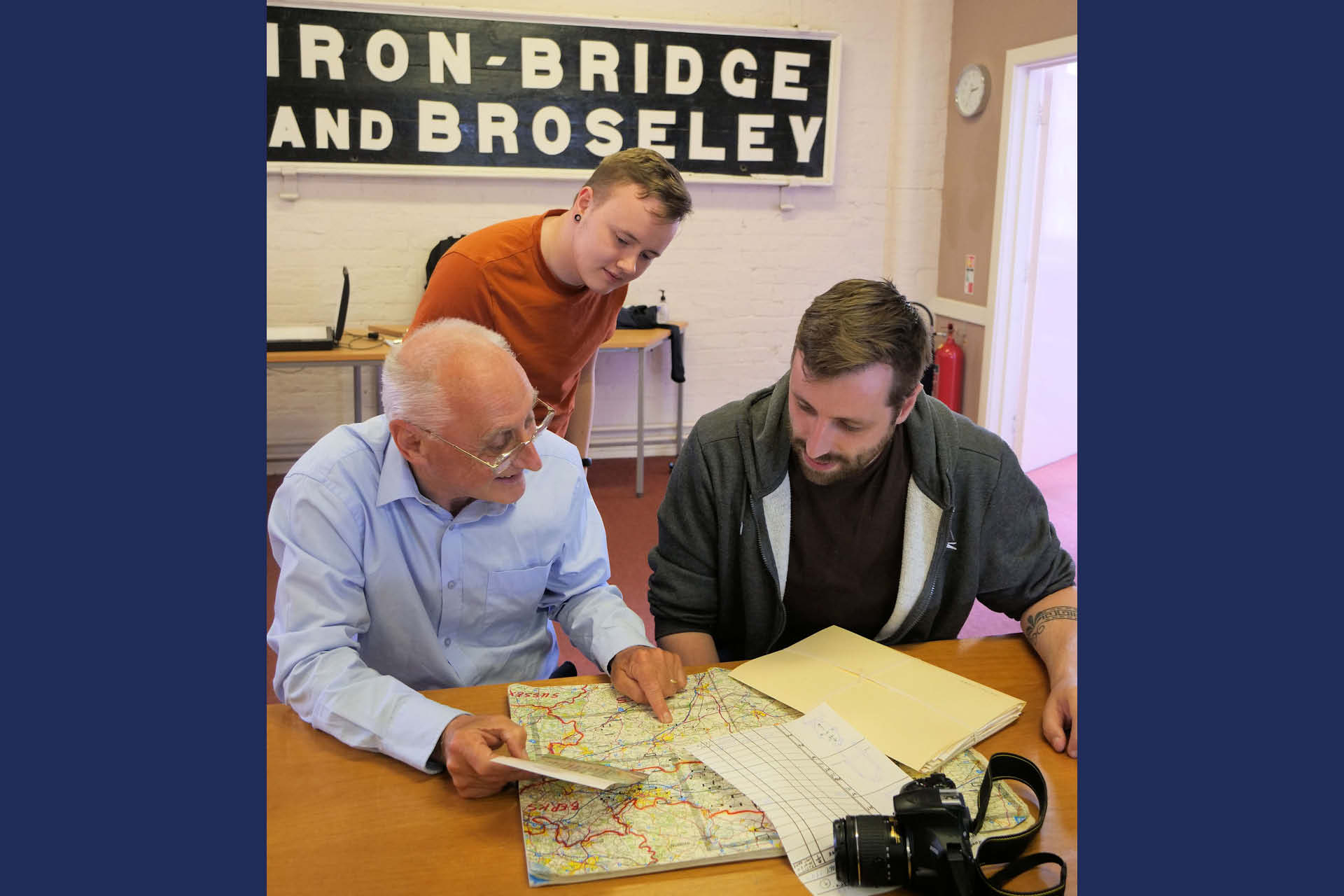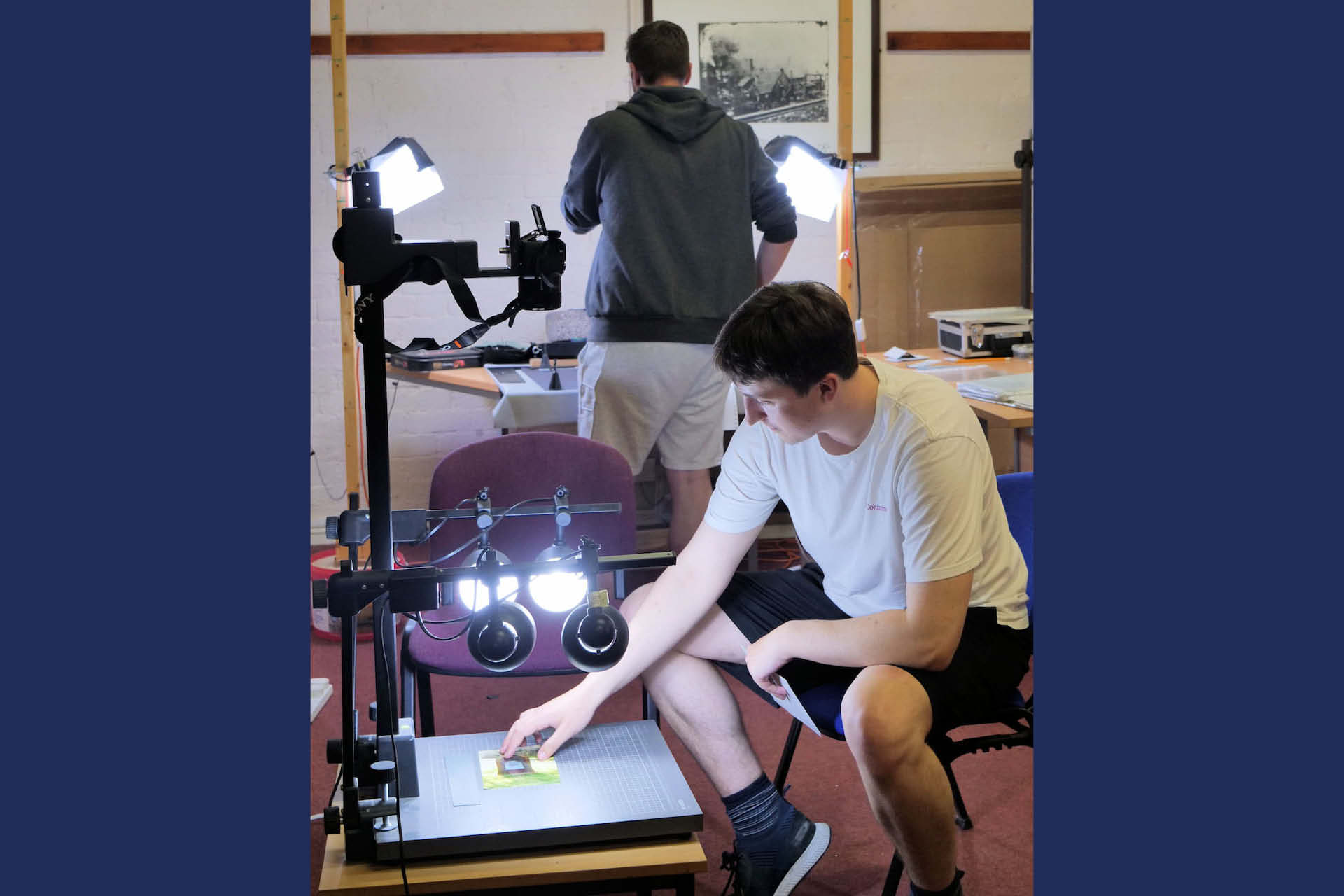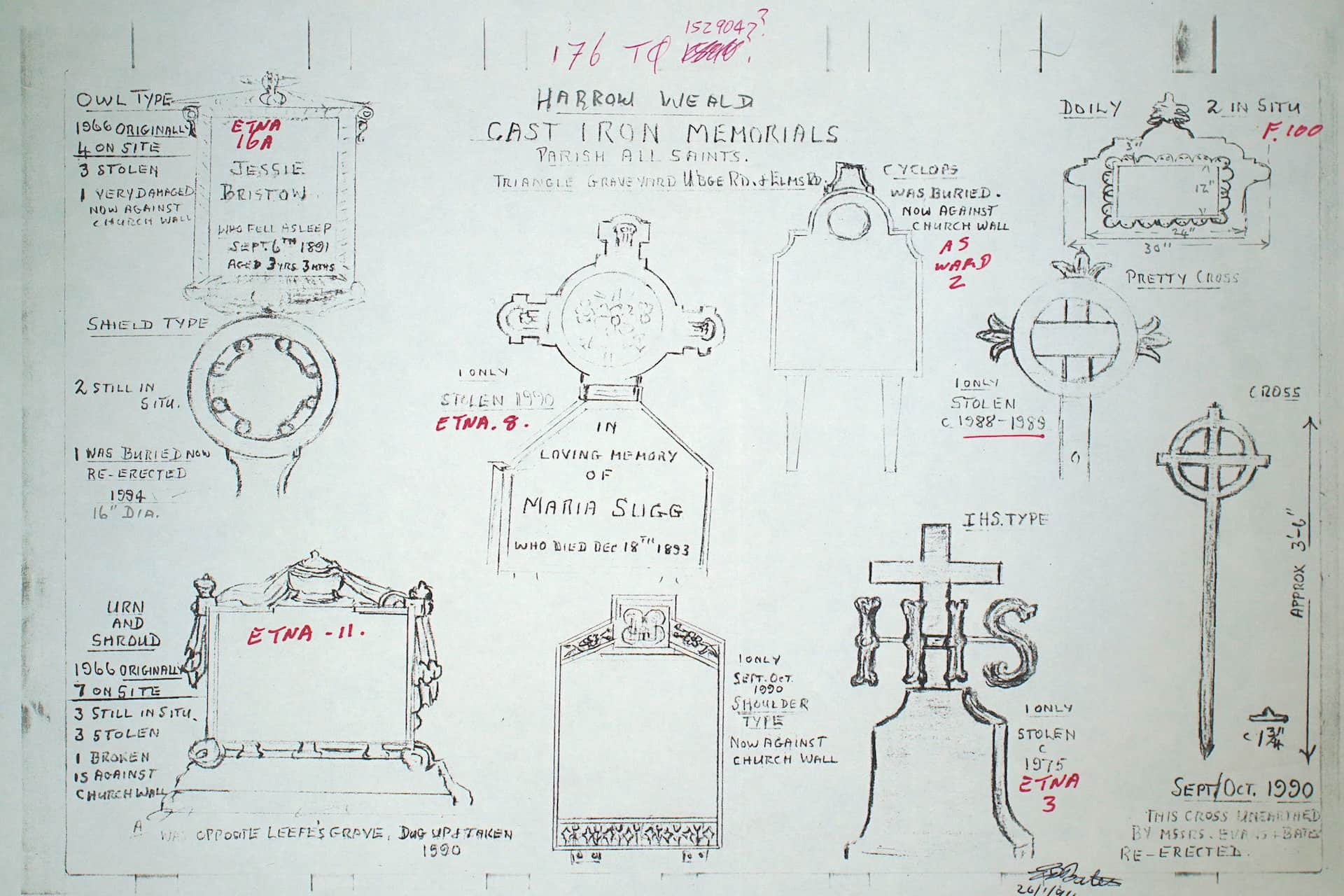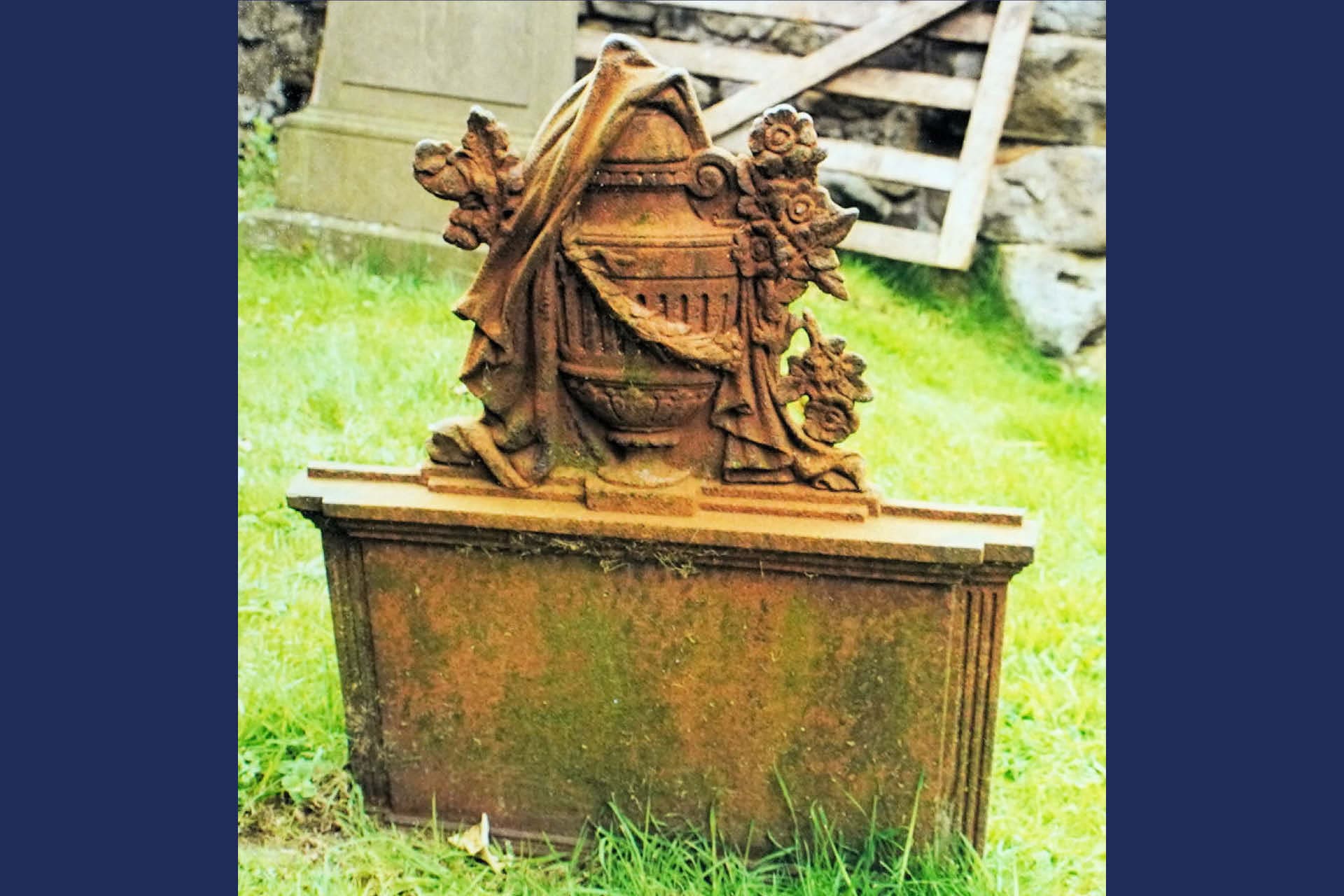
A collaboration between Ironbridge Museum and the University of Liverpool is bringing new life to Tony and Mary Yoward’s project of documenting cast iron burial markers.
For over a decade, Tony and Mary Yoward devoted much of their retirement searching for and recording cast iron burial markers in churchyards and cemeteries around the country, sometimes with the assistance of volunteers who sent on their discoveries.
Collaboration with the University of Liverpool
When Tony Yoward passed away, their family kindly deposited their records at the Ironbridge Museum Library and Archives.
However, there was a lack of resources and expertise to evaluate the contents and integrate them into the archive. A team from the University of Liverpool has come in to help.
Archivist Sarah Roberts said:
We’re delighted to be hosting Professor Harold Mytum and a team of students from the Department of Archaeology, Classics and Egyptology at the University of Liverpool, to work on a previously uncatalogued archive collection relating to Cast Iron Grave Markers (CIGMs).
Professor Harold Mytum is applying his expertise on historic memorials with the help of placement undergraduates Scott Coathup, Michael Gee, Tom Wilkin, and Caleb Wysocki.
The team has been working through the boxes of archives. With the advice of archivist Sarah Roberts, they have been arranging the material in appropriate categories, as the first stage towards making the material accessible to researchers.
Michael Gee and Tom Wilkin photographing items from the archive (Courtesy Ironbridge Gorge Trust):

A digital copy is now being made so the data can be reorganised for analysis, even before the collection can go live. This will show the archive’s potential, and reap the rewards for the efforts of the original recorders.
Scott Coathup reflected that:
Hands-on work with a real archive has been a great experience and helps us appreciate the importance of industrial archaeology in preserving local heritage.
Records and data collection
The Yowards were very organised and designed record forms, collecting set categories of information about each memorial, with colour print photographs.
There was lots of information on the foundries that produced the monuments, so the Yowards were able to link recorded memorials with producer catalogue numbers.
Most records were organised into county folders and so the University of Liverpool team continued this practice for consistency. The team also created digital copies of the records.
Michael Gee mentioned:
It's great to see amateur archaeologists could carry out fundamental research to such a high standard and is an example of citizen science before that phrase was invented.
Drawings of cast iron memorials by Tony Yoward from the archive:

Absence of evidence
The Yowards concentrated on data collection, so only short reports were published, in the form of annotations in a 1987 road atlas. The key takeaway from these reports was that they did not find any cast iron memorials.
This is because, from an archaeological perspective, the negative evidence provides context that will enable interpretation using the existing archive. It will also indicate whether further surveys would be worthwhile to fill in the gaps.
Future potential
Harold Mytum commented:
Working with Sarah at the archives has enabled us to uncover the rich data set collected by the Yowards and their supporters, and begin to realise its untapped potential for mortuary and industrial archaeology.
Photograph of a cast iron memorial by Tony Yoward from the archive:

Nick Booth, Ironbridge Collections and Learning Director agreed:
We’re really pleased to host Prof Mytum and the team...This research shows the importance of archives and their stored collections... that the research of Tony and Mary Yoward is being used in this way. We’re incredibly excited for the future potential of this work.
Professor Harold Mytum is Professor of Archaeology at the University of Liverpool and Director at the Centre for Manx Studies.